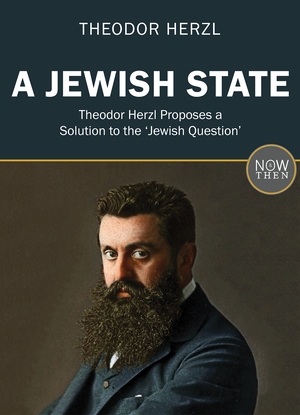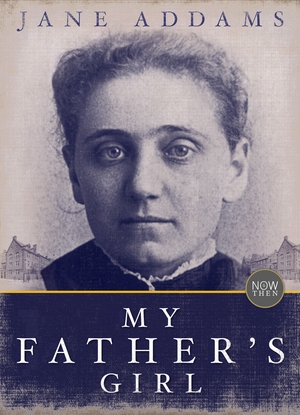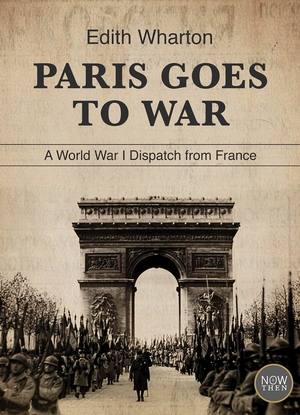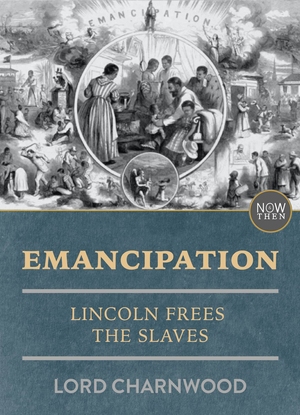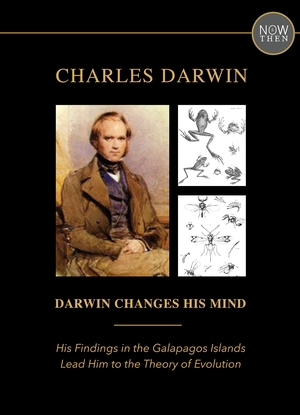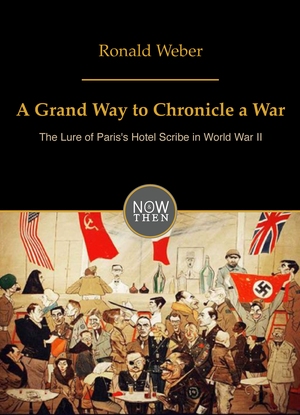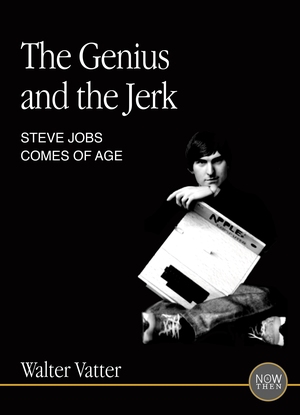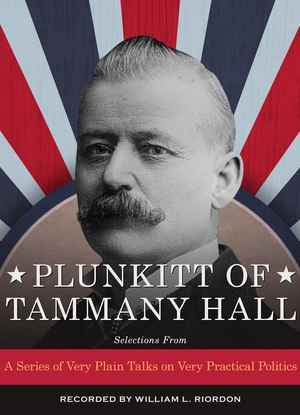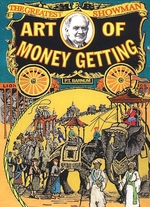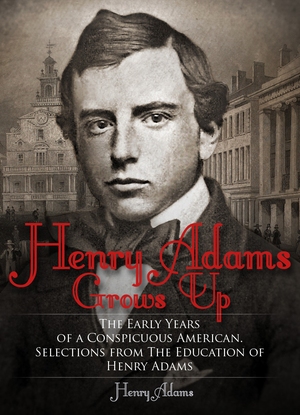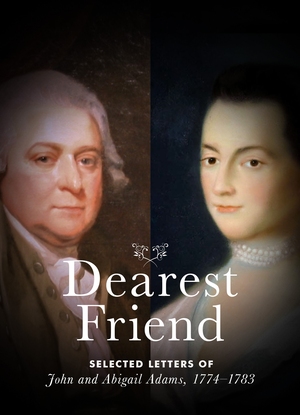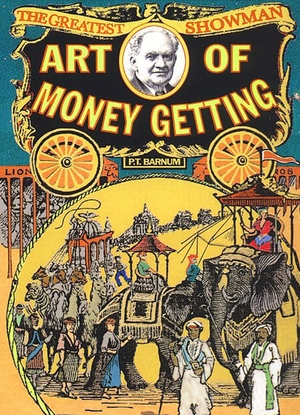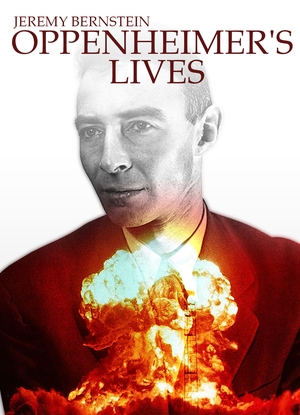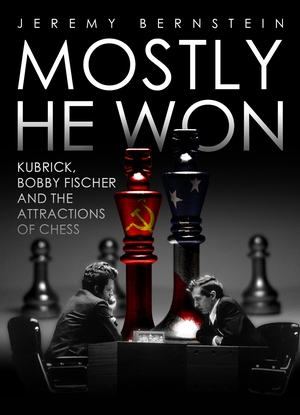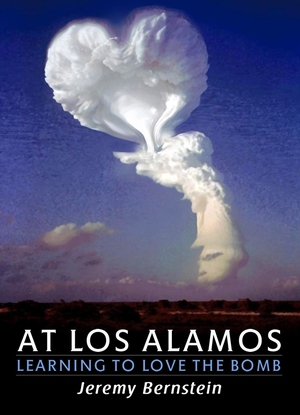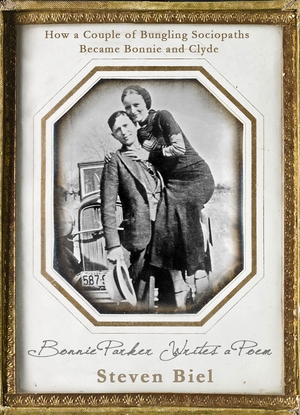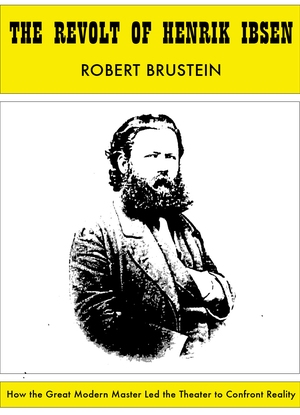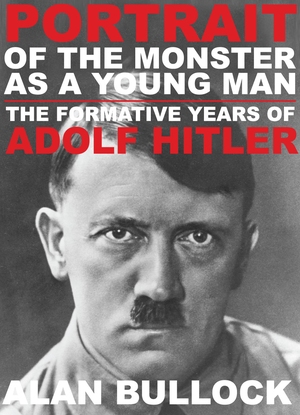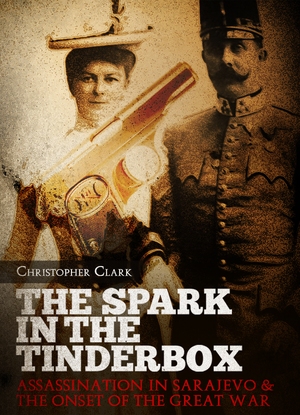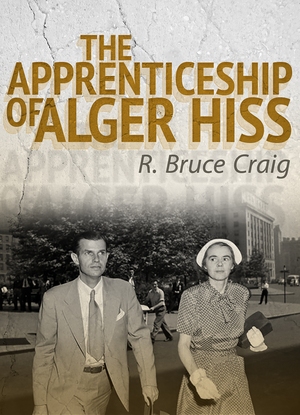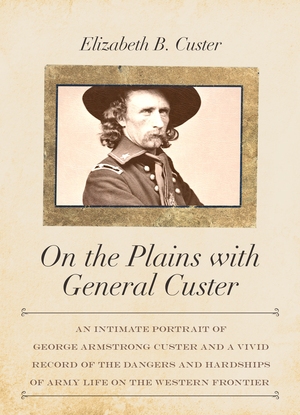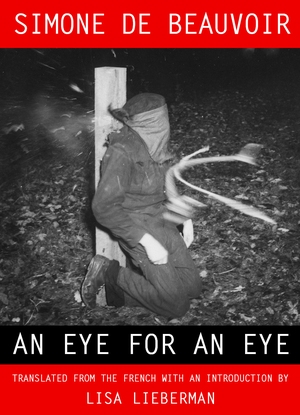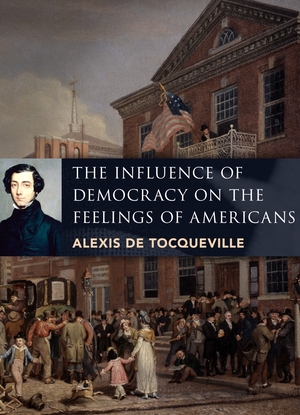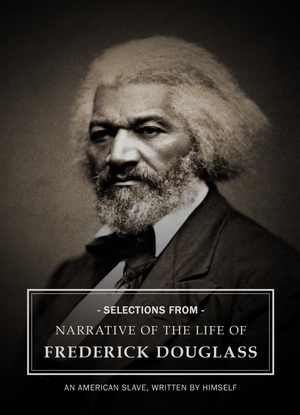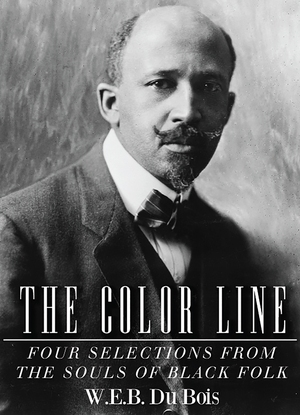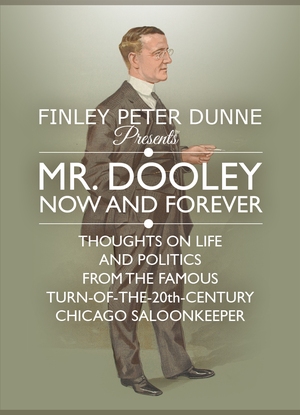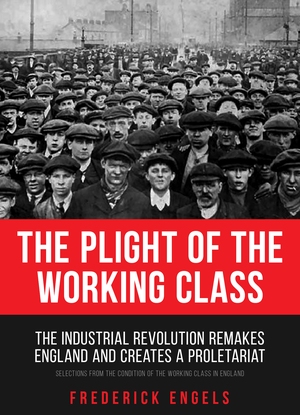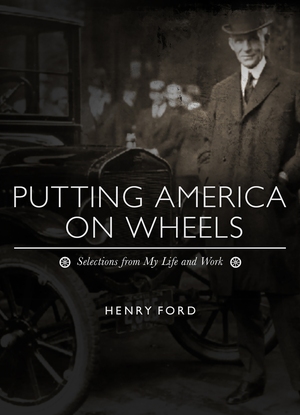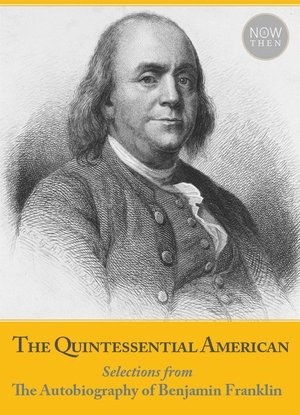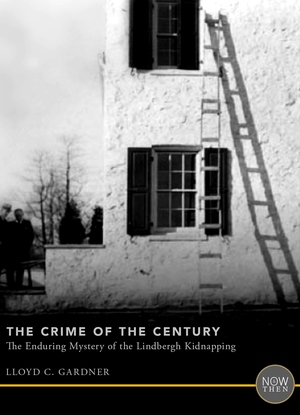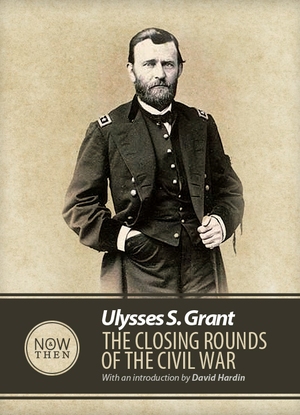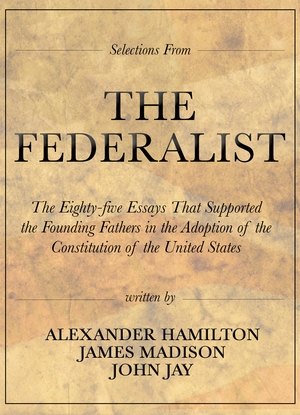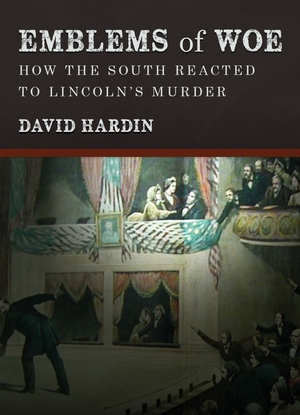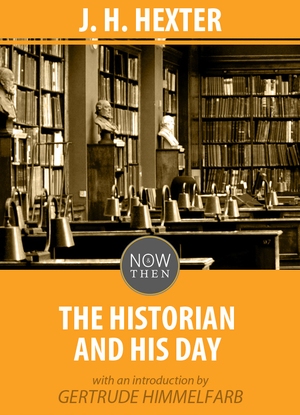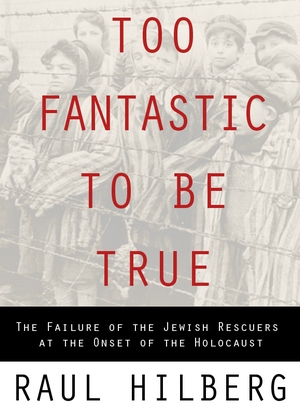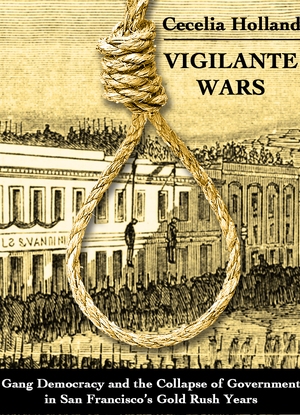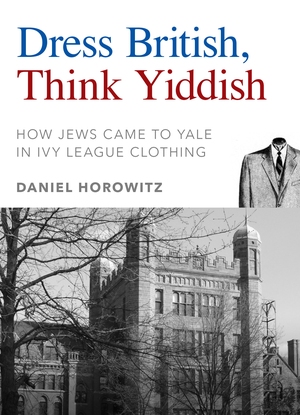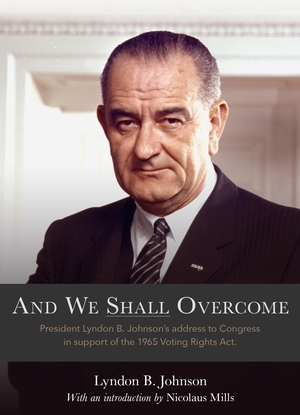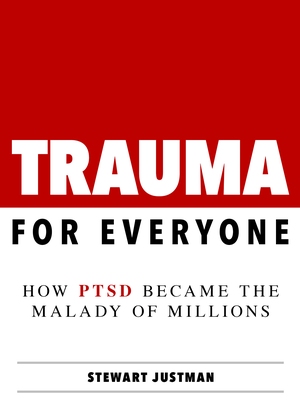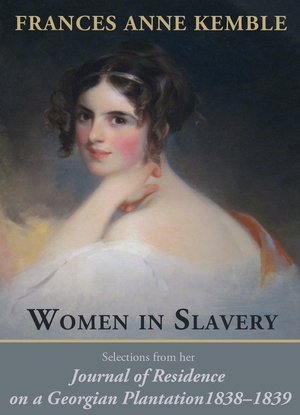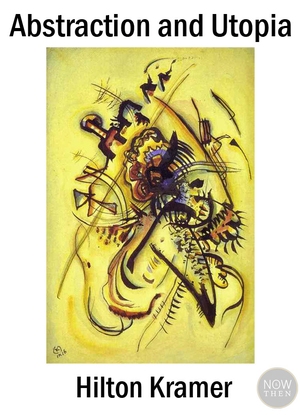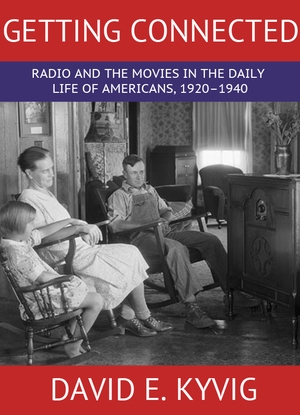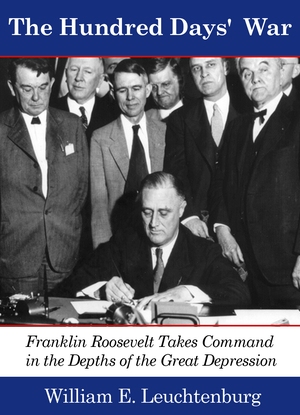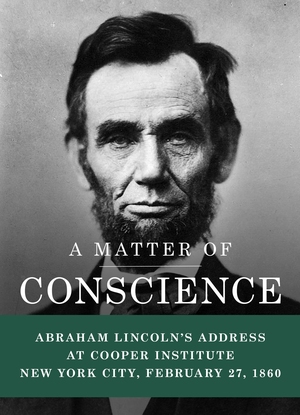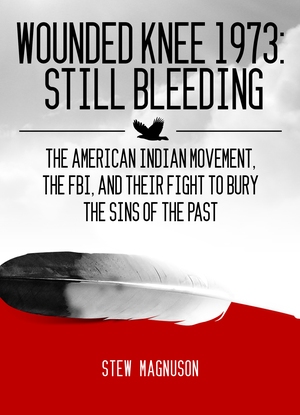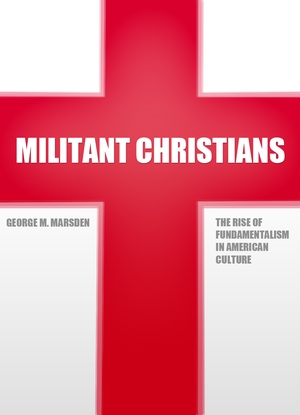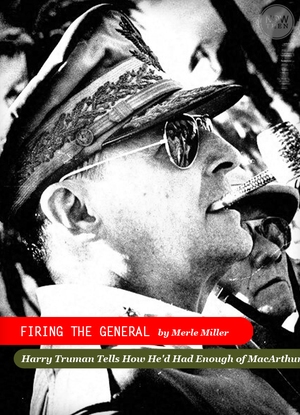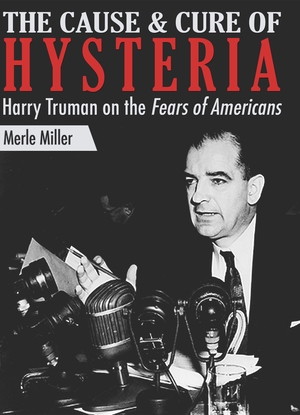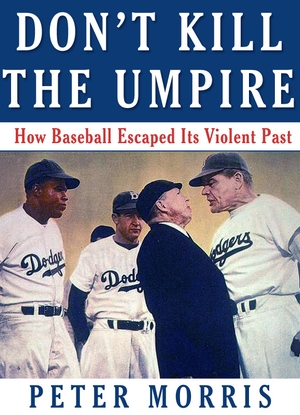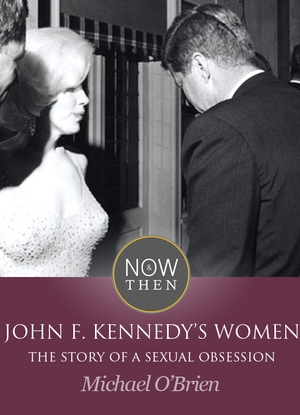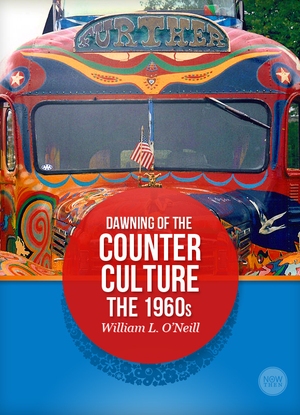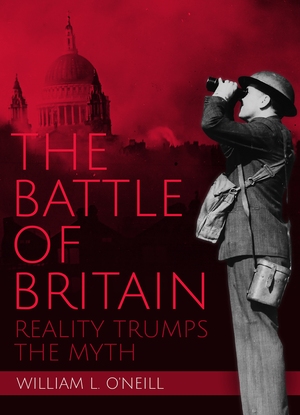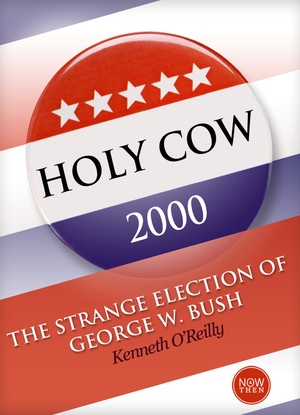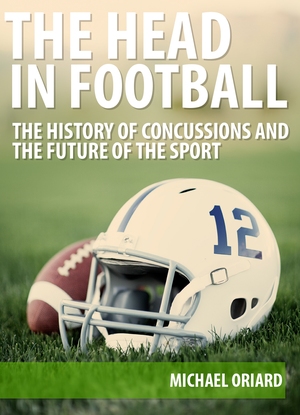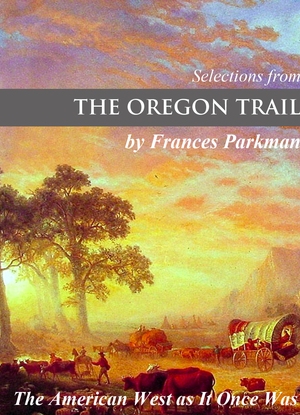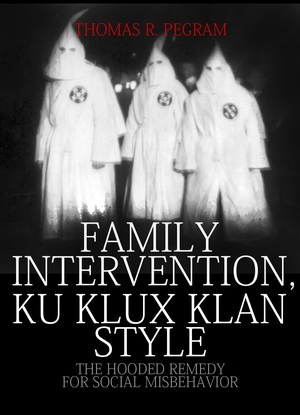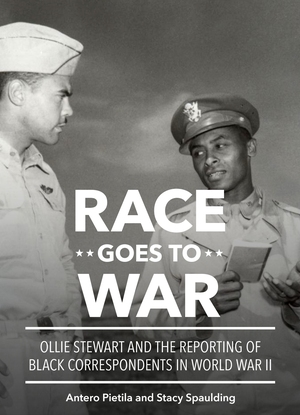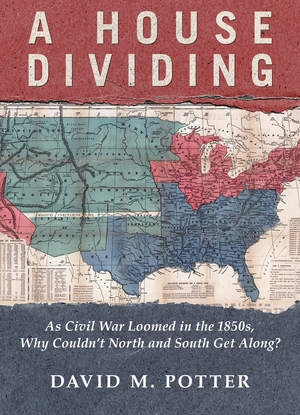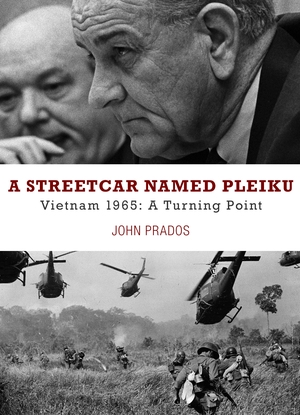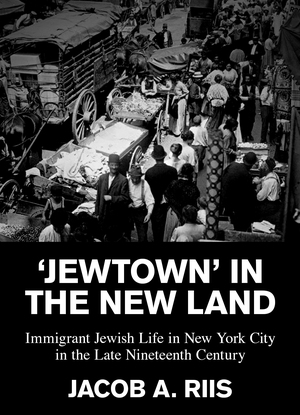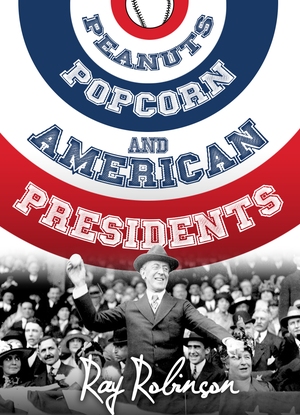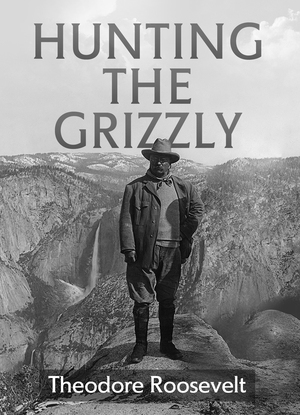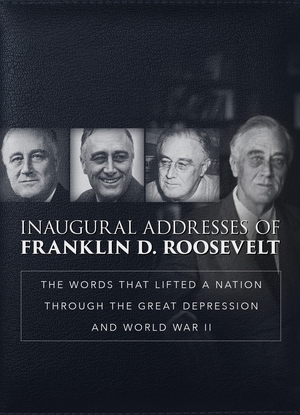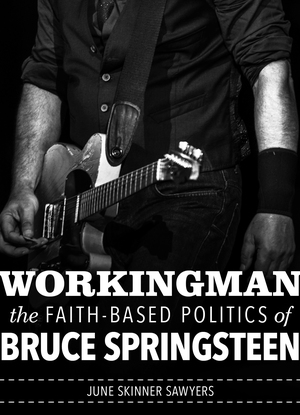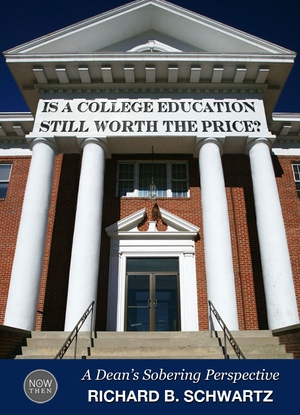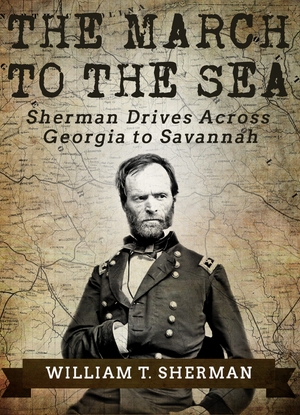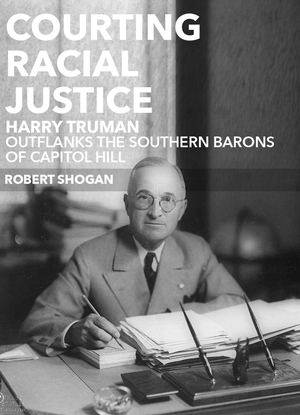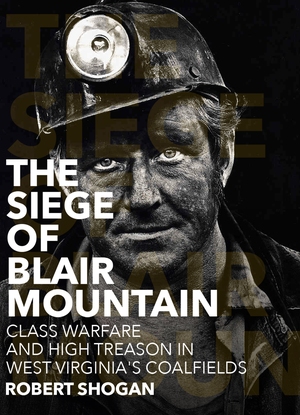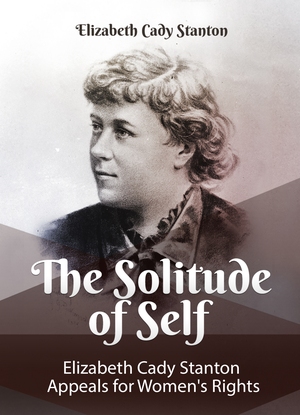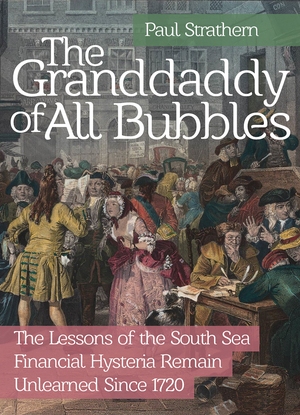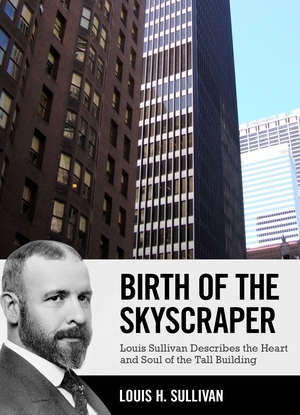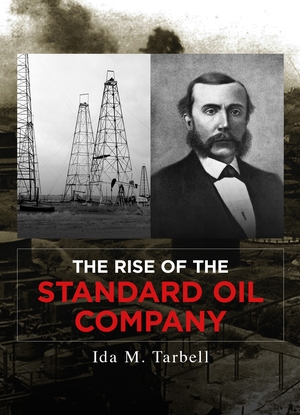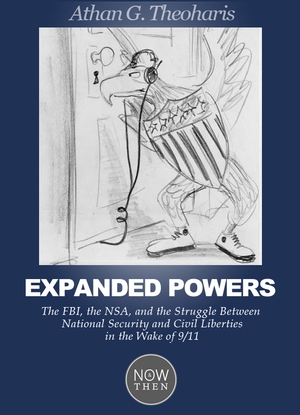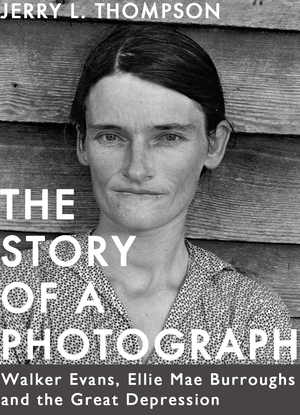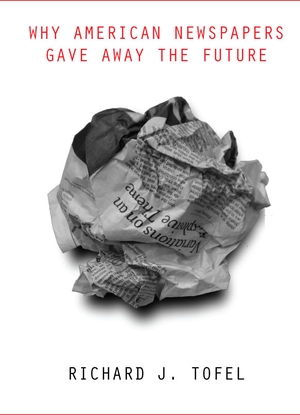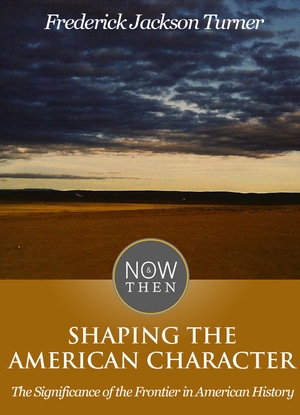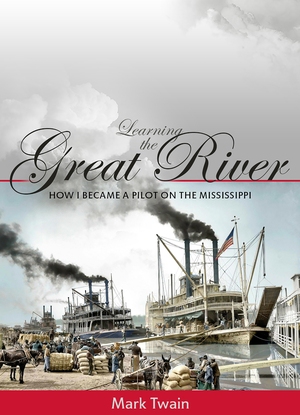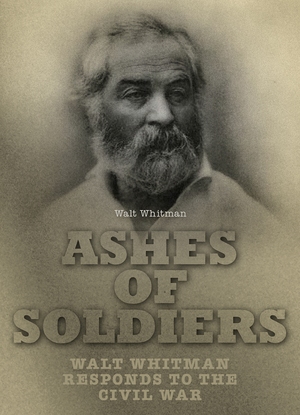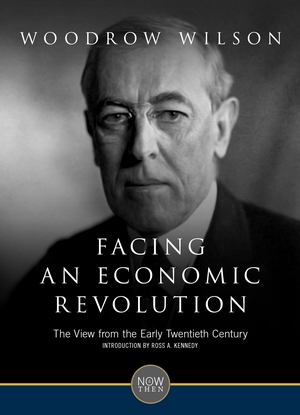Nonfiction Books and Essays
Featuring good writing for serious readers, Now and Then short-form nonfiction books and essays are available exclusively as Kindle books, Nook Books, iPad books or ebooks for other popular mobile devices.
Each week, we publish original titles, excerpts from forthcoming books, and reprints of work worthy of being read again. We focus on writing that is historically based but also has relevance for present day events.
Our latest titles can be found in the list below.
The Early Years of a Conspicuous American / Selections from The Education of Henry Adams
by Henry Adams
United States History, American History, U.S. History, U.S. Government, BiographyHenry Adams, whose distinguished family had a tradition of service to the nation, thought himself a comparative failure because his instincts ran toward literature and spiritual adventure. In his autobiographical Education he tried to make sense of his own path in a changing America.
Selected Letters of John and Abigail Adams, 1774-1783
by John & Abigail Adams
American HistoryFrom 1774 to 1783, years of decisive ferment for their young country, John Adams was at the center of proceedings in the Continental Congress that were to eventuate in the Revolutionary War and the Declaration of Independence; his wife Abigail was at home on their farm in Braintree, Massachusetts, with four children—but in many ways as engaged in daily events as her husband. Their letters, displaying a keen perception and a loving devotion to each other, are unparalleled in American history.
Recollections of My Childhood
by Jane Addams
American HistoryWhen Jane Addams founded Hull-House in an immigrant neighborhood of Chicago, it became a refuge for the poor as well as a symbol of progressive reform in an acquisitive age. Here Addams remembers her father, whom she considered a shaper of her character.
The Inside Story of the Manhunt by the Israeli Secret Service
by Michael Bar-Zohar and Nissim Mishal
European History, Military HistoryThe most celebrated accomplishment in the hunt for Nazi war criminals was the capture, trial, and execution of Adolf Eichmann in 1960—1962. As the Nazi officer overseeing the logistics of the Final Solution, Eichmann had been responsible for sending millions of Jews to their extermination in the death camps of Europe. After World War II he had been living incognito in Argentina when the Mossad, Israel’s intelligence agency, learned of his possible whereabouts. Here is the behind-the-scenes story of Eichmann’s capture.
by P.T. Barnum
United States History, Philosophy, American HistoryThe greatest showman of his age, P. T. Barnum was also the most gifted advocate for the Gospel of Success in nineteenth-century America. Barnum’s autobiography, The Life of P. T. Barnum, Written by Himself, which sold almost half a million copies, included the “Rules of Success.” They were also incorporated into his lecture, “The Art of Money-Getting,” which he delivered more than a hundred times. Horace Greeley thought it “worth a hundred-dollar greenback to a beginner in life.”
The Twisted Path to a Nuclear Weapon
by Jeremy Bernstein
United States History, Political Science, European History, Military History, American History, U.S. History, U.S. GovernmentJeremy Bernstein traces the circuitous route by which Iran secured the expertise to develop a nuclear capability. Since Iran’s program appears to be aimed at weapons production, he concludes, the time of decision for action is fast approaching.
Reflections on the Father of the Atomic Bomb
by Jeremy Bernstein
United States History, Military History, American History, U.S. History, U.S. Government, Biography, BiographyJeremy Bernstein remembers the “father” of the atomic bomb—a man unsure of his identity and scarred by the famous government hearing that took away his security clearance.
Kubrick, Bobby Fischer and the Attraction of Chess
by Jeremy Bernstein
United States History, European History, American History, U.S. History, Sports History, Essays, SportsThe 1972 world championship chess match between Bobby Fischer and Boris Spassky was an event of international importance—and a media bonanza. Out of a heady cast of characters, Jeremy Bernstein fashions a tale of large personalities involved in an intense, brainy competition.
Learning to Love the Bomb
by Jeremy Bernstein
United States History, Military History, American History, U.S. History, U.S. GovernmentThe atomic bomb was developed at government laboratories in Los Alamos, New Mexico, by a team of outstanding physicists under the direction of J. Robert Oppenheimer. Upon seeing the results of the first detonation of an atomic device, the test director Kenneth Bainbridge is said to have remarked to Oppenheimer, “Now we are all sons of bitches.” Yet the physicists could scarcely contain their fascination with what they had wrought, as Jeremy Bernstein finds in this report from ground zero.
How a Couple of Bungling Sociopaths Became Bonnie and Clyde
by Steven Biel
United States History, American History, U.S. History, BiographyIn their time, Clyde Barrow and Bonnie Parker attracted much less attention than star criminals like John Dillinger. Steven Biel plots the strange path by which this pair of ne’er-do-wells became the stuff of myth and legend.
by Ann Birstein
European History, Holocaust“European Discovery Tour” was the title on the travel brochure. But as Ann Birstein knew, the journey that she signed up for included a discovery of the most unhappy places on the continent. Her little tour group, most all of them Jewish, was shepherded not only to some of Eastern Europe’s grandest locales but also to its most terrible, including the remnants of the Warsaw Ghetto, Auschwitz, and other grim reminders of the Holocaust and the lost Jews of Europe. Along the way in what became a search for her own soul, Ms. Birstein offers a moving perspective on a tragic people trapped by history.
by Robert Brustein
European History, TheaterInstead of consoling sermons, modern drama offered painful demands; instead of a liturgy of acceptance, a liturgy of complaint. The man who first brought the theater to this confrontation with reality was Henrik Ibsen. Robert Brustein explores the nature of his revolt.
The Formative Years of Adolf Hitler
by Alan Bullock
European History, Military History, Biography, BiographyFrom Alan Bullock’s incomparable biography: Hitler’s formative years, from his birth in 1889 to the end of the First World War in 1918. It sets the stage for Hitler’s later strategies and programs by explaining the sources of his ideas and the influences of his early life experiences.
Lincoln Frees the Slaves
by Lord Charwood
American HistoryIn September 1862, some fourteen months into the Civil War and having pondered deeply the freeing of the slaves, Lincoln issued his first Emancipation Proclamation. Lord Charnwood recounts the development and importance of this signal event in American history.
Assassination in Sarajevo and the Onset of the Great War
by Christopher Clark
Military History, European HistoryThe assassination of the Austrian archduke Franz Ferdinand and his wife Sophie in Sarajevo in June 1914 by Serbian terrorists capped the political tension and instability of the Balkans in the years before World War I. The European continent, beset by intricate diplomacy and complex alliances, fell into war just thirty-seven days later. The Old World nature of the assassination disguises some very modern elements: a cavalcade of automobiles, a squad of suicide bombers, and an avowedly terrorist organization that existed across political borders, without a clear location. Here in gripping detail is the story of what happened on that fateful morning in Sarajevo.
by R. Bruce Craig
United States History, Political Science, American History, U.S. History, U.S. GovernmentAlger Hiss’s turn toward the political left, leading to his association with Whittaker Chambers, is portrayed in Bruce Craig’s incisive account of Hiss’s early years, drawing upon previously untapped sources.
Selections from Boots and Saddles Or, Life in Dakota with General Custer
by Elizabeth B. Custer
American HistoryLibbie Custer’s Boots and Saddles, published in 1885, offers not only an intimate portrait of her husband George Armstrong Custer, the tragic commander of the Battle of the Little Big Horn. It also vividly records the dangers and hardships of life on the Western frontier for those army wives who followed their husbands from one post to another. Such accounts are scarce. The existence Libbie relates was difficult and sometimes precarious, and when the soldiers left for campaigns against the Indians, the wives waited uneasily at home for news.
His Findings in the Galapagos Islands Lead Him to the Theory of Evolution
by Charles Darwin
History, Natural HistoryIn 1831, Charles Darwin, twenty-two years old and a student of the ministry at Cambridge University, signed on to accompany the captain of the HMS Beagle on a voyage to survey the poorly known coastal areas of South America. Young Darwin’s account of this five-year journey became one of the world’s great travel books—The Voyage of the Beagle—but his experience also led him toward a theory of evolution that overthrew the most fundamental beliefs of man’s place in the world. And a key encounter in this regard was Darwin’s visit to the Galapagos Islands with its myriad species.
by Simone de Beauvoir
Translated from the French with an introduction by Lisa Lieberman
European History, Philosophy, Military HistoryWhere does vengeance end and justice begin? In Simone de Beauvoir’s compelling essay, written in the aftermath of World War II, she explains why she refused to call for the pardon of a prominent right-wing collaborator with the Nazis.
by Alexis de Tocqueville
American HistoryIn this excerpt from his classic analysis of American political life, Tocqueville seeks to understand why democracy causes Americans to feel the way they do about equality, freedom, individualism, religion, associations, and physical pleasures.
An American Slave, Written by Himself
by Frederick Douglass
American HistoryThe story of Frederick Douglass’s struggles as a slave, his desire to learn to read and write, his yearning to be a free man, and his escape to freedom is compactly but passionately related in this Narrative, first published in 1845. The book became one of the great autobiographical statements in the history of American reform.
Four Selections from The Souls of Black Folk
by W. E. B. Du Bois
American History, United States HistoryFour essays, provocative and often poetic, about the black experience in America and the quest for equality at the turn of the twentieth century. The most celebrated essay is Du Bois’s attack on Booker T. Washington’s approach to the improvement of American Negroes, a powerful objection to Washington’s leadership. The other three selections concern the Freedmen’s Bureau after the Civil War and its failed promise; the relations between whites and blacks in the South, then and for the future; and the influence of black religion, especially the church as a social center.
Thoughts on Life and Politics from the Famous Turn-of-the-20th-Century Chicago Saloonkeeper
by Finley Peter Dunne
United States History, Political Science, American History, U.S. History, U.S. GovernmentMr. Dooley, a turn-of-the-20th-century Irish saloonkeeper from Chicago’s Archer Avenue (“Ar-rchey Road,” he called it) on the city’s southwest side, was the creation of Finley Peter Dunne, a Chicago newspaperman. Mr. Dooley analyzed world affairs for the equally fictitious Mr. Hennessey, and his opinions went out to the real press and the reading public. They are current—and funny. The problems confronting America a hundred years ago are among those that remain unsolved today.
The Industrial Revolution Remakes England and Creates a Proletariat Selections from The Condition of the Working Class in England
by Frederick Engels
European History, Economic HistoryAmong the profusion of books and pamphlets and inquiries throughout Western Europe in the mid-19th century that addressed the condition of the working class under the new industrialism, Engels’ book, based on firsthand observation and on other available sources, stood out. Today it remains, as Eric Hobsbawm notes, “the first large-scale attempt to apply the Marxist method to the concrete study of society . . . [and] by far the best single book on the working class of the period.”
Selections from My Life and Work
by Henry Ford
American HistoryHenry Ford tells how, through innovative techniques, he mass produced the Model T for the common man.
Selections from The Autobiography of Benjamin Franklin
by Benjamin Franklin
United States History, American History, U.S. HistoryIn his famous Autobiography, Franklin displays the iconic American virtues of thrift, ambition, hard work, self-improvement, and common sense. In these selections he reflects upon his rise and the self-taught lessons that brought his success.
The Enduring Mystery of the Lindbergh Kidnapping
by Lloyd C. Gardner
True CrimeThe most mysterious and riveting crime of the 20th century was the 1932 kidnapping and murder of the infant son of Charles A. Lindbergh, the American aviator hero. The case involved a cast of characters to delight any author of detective novels. In the end, as a captivated nation followed the details, a sensational trial and the conviction of a single defendant settled the affair—but to almost no one’s satisfaction. Lloyd Gardner tells the story of the Lindbergh kidnapping and why it remains the Crime of the Century, as much a mystery as it ever was.
by Ulysses S. Grant
Introduction by David Hardin
United States History, Military History, American History, U.S. HistoryUlysses S. Grant takes the reader onto the battlefield and behind the lines in his account of the final actions of the Civil War.
The Eighty-five Essays Written by Alexander Hamilton, John Jay, and James Madison Which Supported the Founding Fathers in the Adoption of the Constitution of the United States
by Alexander Hamilton, James Madison, John Jay
American HistoryIn the debate over the proposed American Constitution, the Federalist papers stood out as a brilliant analysis of the fundamental principles of the new government. They remain a major work in the history of political philosophy and the theory of representative government.
How the South Reacted to Lincoln's Murder
by David Hardin
United States HistoryLee’s surrender at Appomattox signaled an end to the Civil War and brought joy and relief to the North and its soldiers, and to the slaves in Confederate states. But the sudden shock of Lincoln’s assassination just five days later, on Good Friday, sullied the victory. As gloom and anger descended across the North, how was Lincoln’s death viewed in the war-ravaged South? Southerners might have been expected to cheer the death of their archenemy, but their reaction was more complex and far from predictable, as David Hardin shows.
Theodor Herzl Proposes a Solution to the ‘Jewish Question’
by Theodor Herzl
History, JudaicaIn 1896 Theodor Herzl proposed an answer to the so-called Jewish Question for the ghettoized Jews of Europe. He argued that anti-Semitism could be curbed if Jews might found an independent state of their own in the twentieth century, and he laid out the principles and programs for its success.
by J.H. Hexter
Introduction by Gertrude Himmelfarb
Essays, HistoriographyHexter's subject—the nature of the historical enterprise—raises the perennially vexing question of past- and present-mindedness in the writing of history. It addresses that issue in a notably down-to-earth, commonsensible, personal manner.
The Failure of the Jewish Rescuers at the Onset of the Holocaust
by Raul Hilberg
United States History, European History, American History, U.S. HistoryDespite information about the plight of the European Jews, the major Jewish organizations in Europe and the U.S. either failed to act or failed to persuade governments to act. Even when the “final solution” became apparent, some leading Jewish figures remained unconvinced of the catastrophe.
Gang Democracy and the Collapse of Government in San Francisco's Gold Rush Years
by Cecelia Holland
United States History, American History, U.S. History, U.S. GovernmentThe 1849 Gold Rush in California brought to a boiling point the new state’s unruly politics and produced mob rule in the muddy streets of San Francisco. Cecelia Holland’s compelling account of these events reveals a disturbing underside of democratic government in a nation headed for civil war.
How Jews Came to Yale in Ivy League Clothing
by Daniel Horowitz
FashionFrom the 1920s to the 1960s, Jewish clothiers supplied the accoutrements of success—the Ivy League style—at American universities, but especially at Yale, one of the oldest and most traditional. At the same time Yale admitted few Jews as students. And then a funny thing happened: as the penchant for repp ties and natural-shoulder suits declined at Yale, the influx of Jews—and other minorities—increased. Here’s the story of how this came about, and how Yale’s idea of success changed, related by someone who was on the scene.
President Lyndon B. Johnson's Address to Congress in Support of the 1965 Voting Rights Act
by Lyndon B. Johnson
Introduction by Nicolaus Mills
American HistoryThe important background and text of President Lyndon Johnson's 1965 Voting Rights speech to Congress. In his remarks Johnson challenged the moral values of Americans and ultimately won the greatest victory for black Americans since Emancipation.
How Medical Activism Has Inflated the Diagnosis of Prostate Cancer and Depression
by Stewart Justman
United States History, U.S. History, Medical HistoryHow the quest for early detection of prostate cancer and depression has led to mass screenings, which in turn have revealed an incidence of disease that is beyond common sense and cautious medical practice. The entire process has led to patients who have been not helped but damaged.
How PTSD Became the Malady of Millions
by Stewart Justman
Medical HistoryPosttraumatic Stress Disorder, or PTSD, has become one of the more popular psychological conditions of our time. First used to describe the symptoms related to combat experiences in war, today a diagnosis of PTSD has been expanded to include some of the most common everyday situations. How it got that way is the subject of Stewart Justman’s fascinating exploration of the rise of PTSD—a story of a questionable diagnosis and of medicine gone astray.
Selections from her Journal of Residence on a Georgian Plantation, 1838-1839
by Frances Anne Kemble
United States History, American History, U.S. HistoryMarried to a wealthy American slaveholder, Fanny Kemble recorded her experience on her husband’s estates from the perspective of an “insider” as well as an “outsider.” Her ability to translate life so vividly onto the page provided readers with a sense of being eyewitness to events.
by Hilton Kramer
Art History, European HistoryHilton Kramer explains abstract art's early ties to utopian politics, locating its initial development among the Russian avant-garde, the De Stijl movement in the Netherlands, and the German Bauhaus, and exploring the ideas of these pioneers.
Radio and the Movies in the Daily Life of Americans, 1920-1940
by David E. Kyvig
United States History, American History, U.S. HistoryEarly-20th-century electrification affected the daily lives of millions of ordinary Americans. Electric lights lengthened days and reshaped nights. As its use expanded, electricity prepared the way for radio and the movies, new marvels of the age.
Franklin Roosevelt Takes Command in the Depths of the Great Depression
by William E. Leuchtenburg
United States History, Political Science, American History, U.S. History, U.S. Government, EssaysWhen Franklin Roosevelt came to the White House, 13 million—roughly 25 percent of the work force—were unemployed. By the day of his inauguration, thirty-eight states had closed their banks. Soon the nation would witness the most furious period of legislative activity in American history.
Abraham Lincoln's Address at Cooper Institute, New York City, February 27, 1860
by Abraham Lincoln
United States HistoryAt this crucial moment for his presidential ambitions, Lincoln addressed the consuming issue of federal power to prohibit slavery in the western territories. He also had to face Southern distrust of his Republican party, formed just six years earlier by anti-slavery activists. Finally, he considered the moral question of slavery, which he found intrinsic to any discussion of Southern desires and Northern proposals. His remarks were designed to make clear where he stood—and where he thought the Union should stand.
The American Indian Movement, the FBI, and Their Fight to Bury the Sins of the Past
by Stew Magnuson
United States HistoryIn 1973 the American Indian Movement occupied the symbolic site of Wounded Knee village in a protest against the U.S. government. Stew Magnuson tells why the anger and resentment on both sides continues to this day.
The Rise of Fundamentalism in American Culture
by George M. Marsden
United States History, U.S. History, Essays, ReligionFundamentalists, uneasy with modernity and with the American social and moral landscape, prefer the Bible’s teachings—in their faith, in their personal lives, and in the larger life of the nation. Here’s why.
How Psychologists Helped Washington Crack the Code of Human Consciousness
by Alfred W. McCoy
American HistoryWhen the CIA first looked into effective methods of torture in the 1950s, it found two major sources of aid. The first was information gleaned by the Nazis during World War II from concentration-camp experiments. The second was the cooperation of professional psychologists, many with leading university positions, who agreed to conduct questionably ethical experiments to show how prisoners might be broken through psychological torture. Alfred McCoy here explores the sordid and often outrageous practices of the CIA and its helpmates.
Harry Truman Tells How He'd Had Enough of MacArthur
by Merle Miller
United States History, Military History, American History, U.S. History, U.S. GovernmentNo episode in the Truman years caused a greater uproar than his firing of Gen. Douglas MacArthur during the Korean War. MacArthur wanted to expand the war; Truman sought a limited conflict. The always candid former president explains what happened.
Harry Truman on the Fears of Americans
by Merle Miller
U.S. HistoryThroughout American history, unscrupulous politicians have stoked fear among the people by calling certain “outsiders” threats to society. Senator Joseph McCarthy’s anti-Communist crusade prompted Harry Truman to reflect on the nature of demagoguery.
How Baseball Escaped Its Violent Past
by Peter Morris
U.S. History, Sports History, Essays, SportsBaseball was not always a game of quiet courage played by gentlemen, as Peter Morris shows in this fascinating historical profile of the rise and fall of violence as a part of our national pastime.
The Story of a Sexual Obsession
by Michael O'Brien
United States History, American History, U.S. HistoryLargely under the radar during Kennedy’s White House years was the president’s womanizing. O’Brien details Kennedy’s near-pathological approach to women and sex, then beyond the farthest reaches of the media’s imagination. Here is an astonishing piece of presidential history.
by William L. O'Neill
United States History, American History, U.S. HistoryAs William O’Neill makes us realize, the 1960s was a time like no other America has ever known. In this appraisal of its “new” culture, he conveys all that was inspired, phony, large-spirited, dreary, mad, magnificent, screwed-up, delightful, and confused about the period.
Reality Trumps the Myth
by William L. O'Neill
European History, Military HistoryA key moment in World War II was Britain’s gallant resistance to the German bombings of its homeland in 1940. With their backs to the wall, as the story goes, the British people staved off a Nazi invasion and thereby perhaps saved Western civilization. Here the distinguished historian William L. O’Neill challenges the commonly held view of the Battle of Britain as a victory against overwhelming odds, arguing that it should not have been unexpected. The British, he writes, were well positioned to repel their foes.
by Kenneth O'Reilly
United States History, Political ScienceThe contested election of 2000 that brought George W. Bush to the White House was filled with a strange sort of drama. But, as historian Kenneth O’Reilly shows in this fresh recounting, it was even stranger than we know.
The History of Concussions and the Future of the Sport
by Michael Oriard
Sports History, SportsConcern over head injuries in football now makes parents and educators fearful, and threatens the future of the game. Michael Oriard, who himself once played football at all levels, brings a unique perspective to this investigation of the physical and cultural aspects of the sport as they affect the role of the head.
The American West as It Once Was
by Francis Parkman
United States History, American HistoryIn 1846, Francis Parkman traveled some seventeen hundred miles through the unspoiled West, meeting trappers, gamblers, woodsmen, soldiers, emigrant pioneers, and Indians, and hunting buffalo with a band of Oglala Sioux. His account remains one of the great books ever produced by an American.
The Hooded Remedy for Social Misbehavior
by Thomas R. Pegram
United States History, American History, U.S. HistoryIn the social unease that followed World War I, some groups sought to preserve white Protestant morality in the face of new challenges to the old order. A reborn Ku Klux Klan focused not on racial matters but on social behavior, with a peculiar, not-so-subtle intervention in family affairs.
Ollie Stewart and the Reporting of Black Correspondents in World War II
by Antero Pietila & Stacy Spaulding
United States HistoryAmerican blacks entered World War II in a peculiar position. Could they fight for the freedom of others while their own country denied theirs? And could they fight honorably in a still segregated armed forces? This illuminating perspective on World War II reportage shows how questions of race followed troops to the battlefields and how black correspondents—allowed on the frontlines for the first time—reported it.
As Civil War Loomed in the 1850s, Why Couldn’t North and South Get Along
by David M. Potter
American History, Civil WarSoon after Appomattox, historians began debating the causes of the American Civil War. Why had North and South grown apart? Had it been all about slavery as a moral question? Or were less visible economic interests at work? Perhaps two distinct cultures had finally produced irreconcilable differences. The debates continue to this day, but nowhere is the reader likely to find a more brilliant and succinct analysis than in David Potter’s account of the major events that led to war.
An Outmoded Concept Is Sapping America's Strength
by John Prados
United States History, Political Science, Military History, American History, U.S. History, U.S. Government, EssaysThe distinguished historian John Prados calls for a total rethinking of our expansive concept of national security. If we fail to make hard decisions about existential threats, he concludes, we will find ourselves in a death spiral as a nation.
Vietnam 1965: A Turning Point
by John Prados
American History, Vietnam WarThe story of a major turning point in the Vietnam War, and whether the attack on Pleiku was only an excuse for Washington’s escalation.
Immigrant Jewish Life in New York City in the Late Nineteenth Century
by Jacob A. Riis
American History, Immigration HistoryIn the great migrations of the later nineteenth century, New York City drew masses of Irish, Italian, and Jewish newcomers, many of them crowded into tenements on the Lower East Side. Soon it was the most densely populated place on earth. In the 1890s the area became a subject of investigation by a new breed of American journalists, the muckrakers. Jacob Riis’s How the Other Half Lives, published in 1890, sought to reveal the way of life in the New York tenements. Here he describes how Jewish immigrants made their way in a strange new land.
Selections from a Series of Very Plain Talks on Very Practical Politics, Delivered by Ex-Senator George Washington Plunkitt, the Tammany Philosopher, from His Rostrum--the New York County Court House Bootblack Stand
by William L. Riordon
American HistoryAmong the great manuals of urban politics in America, none is more charming or instructive than the plain talks of George Washington Plunkitt of New York City’s powerful Tammany Hall at the turn of the twentieth century. “I seen my opportunities and I took ’em,” said Plunkitt while explaining the differences between honest graft and dishonest graft. His office was Graziano’s bootblack stand in New York’s old county courthouse.
Hank Greenberg Confronts Anti-Semitism in Baseball
by Ray Robinson
United States History, U.S. History, Sports HistoryWhen Hank Greenberg challenged Babe Ruth’s home run record he became a hero to American Jews. On the 100th anniversary of his birth, Ray Robinson remembers the man, the player, and the prejudice he overcame.
by Ray Robinson
United States History, American History, U.S. History, Sports History, SportsNo politician who yearns for the White House would dare turn his back on the National Pastime. Ray Robinson surveys the presidential attitude toward baseball since the early twentieth century, separating the enthusiasts from the pretenders.
by Theodore Roosevelt
American History, U.S. History, Sports History, EducationOn his Dakota ranch, Theodore Roosevelt learned to ride Western style, rope, and hunt. Already at twenty-seven a serious historian and author, he began writing about the frontier life. His account of confrontations with grizzly bears shows us how unusual was this American president.
The Words That Lifted a Nation Through the Great Depression and World War II
by Franklin D. Roosevelt
American HistoryAmong his other accomplishments, Franklin D. Roosevelt was the first president in American history to be elected four times. Upon each of FDR’s inaugural addresses, the nation faced different problems. Some progress had been made, but many problems had not yet been overcome; and meanwhile new challenges or perils lay on the horizon. In his addresses, Roosevelt offered the people a candid appraisal and sometimes sought to prepare them for circumstances that lay ahead.
The Faith-Based Politics of Bruce Springsteen
by June Skinner Sawyers
American History, MusicThe working-class hero of rock music is Bruce Springsteen, who sings of the troubles and joys in the everyday lives of small-town Americans. At times Springsteen has been accused of being a romantic or, even worse, just a liberal; but he’s also been celebrated as a visionary, a troubadour whose insights into the struggles of common folk also touch on the larger themes of disenchantment with the American Dream. Springsteen came only gradually to a political message in his music. The course of his development is traced in this revealing portrait by June Sawyers.
The oral history of Siskel and Ebert
by Josh Schollmeyer
United States History, American History, U.S. History, Television HistoryRoger Ebert and Gene Siskel, competing Chicago film critics, started out as enemies in print. When someone put them together on TV to critique coming attractions, they became legendary—and friends, but no less acerbic. Witty and engaging, in the end they stood tallest when they stood together.
A Dean's Sobering Perspective
by Richard B. Schwartz
United States History, EducationA former dean looks at American higher education and finds the value of a college education now highly problematic. With an insider's knowledge, he describes the hidden costs behind exploding tuition costs that are creating a two-tiered society.
Sherman Drives Across Georgia to Savannah
by William T. Sherman
Military History, American History, U.S. HistoryThe most controversial Civil War general was William T. Sherman, an indelible figure whose march through Georgia and the Carolinas typified his unrelenting style of warfare that showed the South no quarter. Sherman’s Memoirs may not be as direct as Grant’s, but they make no compromise. They are the work of an intelligent and literate man who brought to modern warfare a new sensibility that was later to become a subject of ongoing debate. Here is his account of the march from Atlanta to Savannah in November and December 1864, the prelude to Confederate surrender.
Harry Truman Outflanks the Southern Barons of Capitol Hill
by Robert Shogan
United States History, Political Science, American History, U.S. History, U.S. GovernmentPresident Harry Truman skirted Congress and boldly used the Justice Department to support the rights of black Americans. How he did it, and his effort’s lasting consequences, are told in this sharply observed account.
Class Warfare and High Treason in West Virginia's Coalfields
by Robert Shogan
United States History, Political Science, American History, U.S. HistoryThe so-called Roaring Twenties were not only about loose morality and a devil-may-care display of opulence. In the byways of America, working men and women were seeking labor justice and struggling against the entrenched powers of capitalism. Nowhere was this struggle more poignant and important than in the coalfields of West Virginia. There in the 1920s the United Mine Workers confronted the coal operators who sought to bust their union. The ensuing conflict, violent and bloody, had much to say about the future of relations between working people and their bosses in America.
Elizabeth Cady Stanton Appeals for Women's Rights
by Elizabeth Cady Stanton
United States HistoryThe major women’s suffrage organizations used a variety of tactics in seeking the vote but did not achieve success until the ratification of the Nineteenth Amendment to the U.S. Constitution in 1920. Elizabeth Cady Stanton served these organizations for more than twenty years as president. In that time she became a leading champion of women’s rights and the intellectual powerhouse of the woman’s movement in the United States. Late in life, in “The Solitude of Self,” she distilled her most compelling arguments.
The Lessons of the South Sea Financial Hysteria Remain Unlearned Since 1720
by Paul Strathern
World History, Economic HistoryThe lessons of financial bubbles and their inevitable consequences could be discerned almost three centuries ago, in 1720. Paul Strathern here relates the story of London’s South Sea Bubble, the first great financial hysteria, whose characteristics appear all too familiar today.
Louis Sullivan Describes the Heart and Soul of the Tall Building
by Louis H. Sullivan
American History, ArchitectureIn these excerpts from his most important writings, Louis Sullivan explores the cultural ideas as well as the engineering and architectural realities that led to the making of the skyscraper and America's emphasis on the tall building as a fixture of modern urban society. Sullivan is the key link between nineteenth- and twentieth-century architecture and moreover between two worldviews.
by Ida M. Tarbell
American HistoryThe discovery of oil in Pennsylvania in 1859 opened a new chapter in world commerce and riveted the attention of American entrepreneurs, notably a young man named John D. Rockefeller of Cleveland, Ohio. Rockefeller was not only a man of vision; he was possessed of singular drive, ambition, and a ruthlessness to succeed. Almost single-handedly he built the Standard Oil Company into the greatest corporate colossus the country had witnessed. Ms. Tarbell’s account of the Standard’s rise covers a crucial moment in Rockefeller’s quest for dominance of the industry.
The FBI, the NSA, and the Struggle Between National Security and Civil Liberties in the Wake of 9/11
by Athan G. Theoharis
United States History, American History, U.S. History, U.S. GovernmentAthan Theoharis considers the record of the past to assess today’s broadened powers for the FBI and the NSA after 9/11. He concludes that Americans may feel marginally safer, but at a dangerous cost to their freedoms and to the tenor of our political dialogue.
Walker Evans, Ellie Mae Burroughs, and the Great Depression
by Jerry L. Thompson
United States History, American History, U.S. History, EssaysWalker Evans’s iconic photograph of Ellie Mae Burroughs of Hale County, Alabama, made while he was working with James Agee, has become a memorable symbol of the Great Depression. How it came to be, and what consequences it provoked, make for a fascinating tale.
by Richard J. Tofel
United States History, European History, Military History, American History, U.S. History, EssaysAn insider’s assessment of the precipitous decline of large city papers in the United States, and the newspapers’ response to their problems, by an experienced newspaper executive.
The Significance of the Frontier in American History
by Frederick Jackson Turner
United States History, American History, U.S. HistoryTurner here lays out his “frontier thesis,” which remains one of the key interpretations of American history. He argued that the circumstances of life on the western frontier were a determining influence on American character and institutions.
How I Became a Pilot on the Mississippi
by Mark Twain
American HistoryA Mississippi steamboat pilot needed to know every twist and turn and sandbar of the ever-changing river to navigate it safely. Sam Clemens studied the Mississippi’s two thousand miles for more than two years before he received his steamboat pilot license in 1859. The occupation gave him his pen name, Mark Twain, from "mark twain," the cry for a measured river depth of two fathoms. In these excerpts from Life on the Mississippi, Twain’s memoir of his experiences on the great river, he recalls his adventures—and misadventures—in learning to be a pilot.
Jack Kerouac and the Making of the Beat Generation
by John Tytell
United States History, American History, U.S. History, BiographyJack Kerouac’s On the Road in 1957 burst onto a fifties America supposedly safe and stuffy, and announced the coming of the “beat” generation. This new and wildly disorganized view of life seemed to extol amorality and self-gratification. Here is an insightful mini-biography of the beats’ icon.
Steve Jobs Comes of Age
by Walter Vatter
American History, BusinessWas Steve Jobs a genius with a nasty personality, or simply an expert huckster? Walter Vatter explores Jobs’s early years—his family life, education, personal relationships, technological smarts, and important decisions—and in the process questions the nature of success in America.
The Lure of Paris's Hotel Scribe in World War II
by Ronald Weber
History, JournalismIn 1944, after the liberation of Paris, the Hotel Scribe became Allied press headquarters in Europe. Through the Scribe’s portals, with its hot baths, good food, and comfortable bar, passed the cream of wartime journalism as well as its foot soldiers--a fascinating scene behind the front lines.
A World War I Dispatch from France
by Edith Wharton
European HistoryAfter a painful divorce in April 1913 and fifteen months of travel, Edith Wharton found herself in Paris, where she had long been a familiar presence. By August 4, 1913, the Great War had begun in Europe; Wharton viewed France’s entry into the war as curiously idealized and abstract. Upon the order for General Mobilization, she found no panic, no tumult, not even much excitement in the streets, only a sense of political and social unity and a quiet readiness for what lay ahead. But the Paris she knew, its look and its atmosphere, was nonetheless totally and suddenly changed.
Walt Whitman Responds to the Civil War
by Walt Whitman
American HistoryFor three years during the Civil War, Walt Whitman was a voluntary visitor and “consolant” to the wounded soldiers in Washington hospitals. His record of ministering to young soldiers in their critical moments of courage and suffering is one of the most tender accounts of war’s consequences.
The View from the Early Twentieth Century
by Woodrow Wilson
United States HistoryIn the 1912 presidential election, Woodrow Wilson spoke to Americans at a pivotal moment in the development of the American economy. A world of individual competition and small-scale capitalism was being overtaken by a new reality of labor unions and large-scale corporations. Wilson attacked irresponsible big business and warned that regulating it would not alone solve America's problems. He saw corporate power as a threat to freedom, to be countered only by government intervention in the economy.
